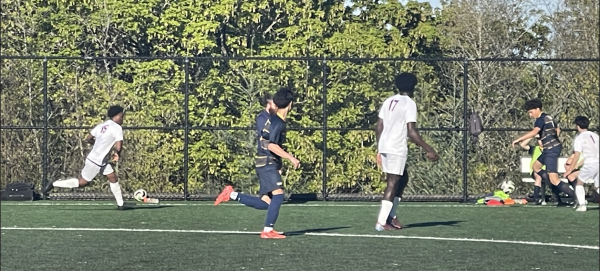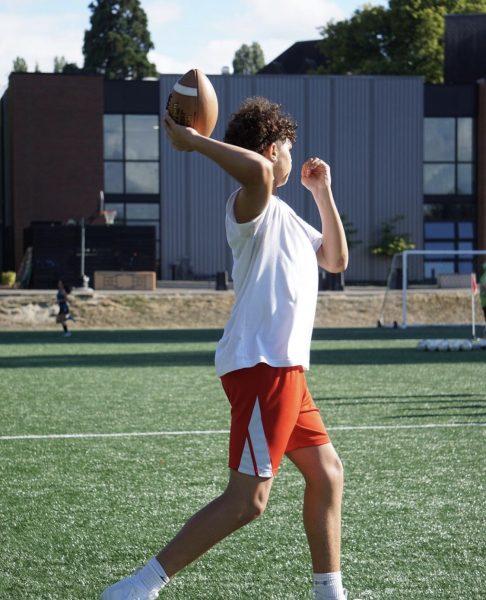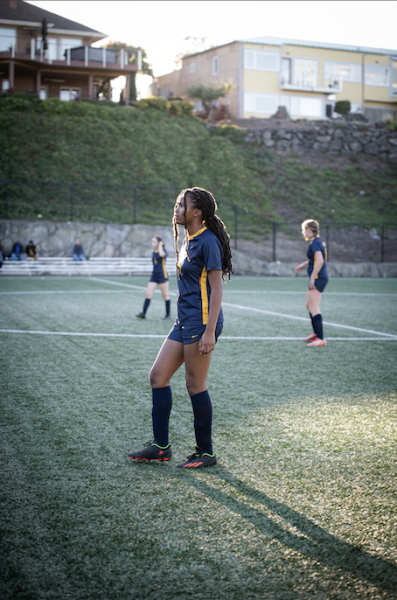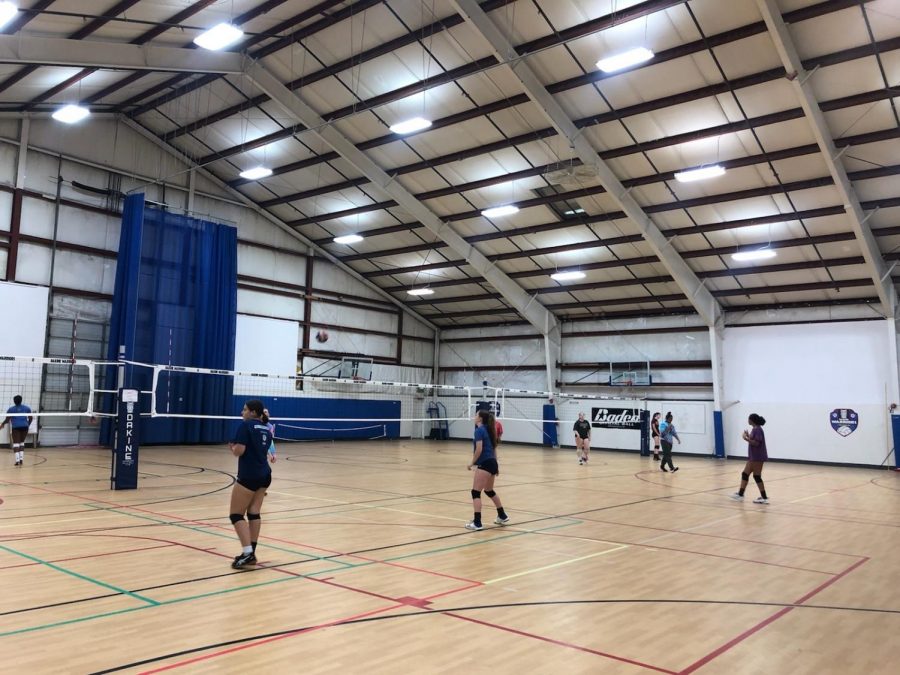COVID-19 Impacts College Recruitment of Hopeful Student-Athletes
photo courtesy of Kiran Hutchinson
New social distancing guidelines are in effect at a few sports clubs that are still practicing, like Dakine Volleyball Club, pictured here.
College sports have long been a pinnacle of the American college experience, with over 460,000 student-athletes competing for NCAA colleges of all divisions. However, due to recent COVID-19 concerns, the Washington Interscholastic Activities Association (WIAA) has suspended all high school sporting events.
Most club teams of any sport have not held or participated in games since at least March, and very few are holding socially distanced practices/training sessions now. These new restrictions are difficult for many athletes, especially those looking to be recruited to play at the collegiate level.
Upper School for Girls sophomore and Varsity volleyball player Kamalani Enomoto commented on how difficult COVID-19 has made her recruiting process. Often, prospective student-athletes are invited to colleges for unofficial visits. “Attending home games and interacting with students in-person are crucial to understanding the student culture at each school… Now with COVID, it’s near impossible to physically interact with students in a safe manner,” she said.
Enomoto noted that without live games, gathering film to submit to colleges is extremely difficult, saying she “can’t express [her need for game film] enough.” She added that without guidance from her coaches, “there’s a great chance next season I’ll remain in the dark with this long recruitment process.”
Enomoto’s AWS teammate and fellow USG sophomore Izzie Iregui mentioned that she would have been starting the recruiting process this year, but now she isn’t sure when she will be able to continue playing, let alone with spectators. “I’m afraid that by the time the coronavirus has been subdued enough to safely continue playing, it’ll be too late for a lot of us,” she said.
Both Enomoto and Iregui continue to practice with their club teams in limited groups. Coaches sanitize balls between rounds of play, and players are required to wear masks to and from practice, as well as to socially distance themselves. Despite these developments, most players still feel nervous about when they will be able to play again, and whether their skill level will be the same.
Inkwell also spoke with Annie Wright Athletic Director Mike Finch about the new changes to the recruiting process.
“College coaches are not coming out to practices. All college coaches can do right now is basically have virtual conferences with these prospective students. What students have done is… they will showcase their individual skills to that coach on the other side of the screen… but those athletes are not able to showcase what they’re like [in a game], they’re only able to show their skills.”
Finch mentioned that a few AWS students are reliant on their sport for college admission. “That’s not to say that they wouldn’t get accepted to some college,” he said, “but [sports will] help these Annie Wright students get into a college that they may not have been able to get into if it were just academics alone… There are so many different angles here, and people are really stuck in between… for a 17 or 18-year-old to get into the college they want to for their future livelihood, it’s crucial.”
He also noted that, in general, college recruitment is based on club team performance rather than school teams. Without a club to play for, coaches can no longer watch athletes. “It’s devastating,” Finch said.
Finch also mentioned recent cases where Washington student-athletes have moved to Idaho or another open state in order to play and be eligible for competition. “They are competing in fall sports as we speak,” he said.
Both Upper School divisions began small-group athletic training this week in pods of five. The WIAA is expected to announce potential return-to-play decisions by the end of the year.





